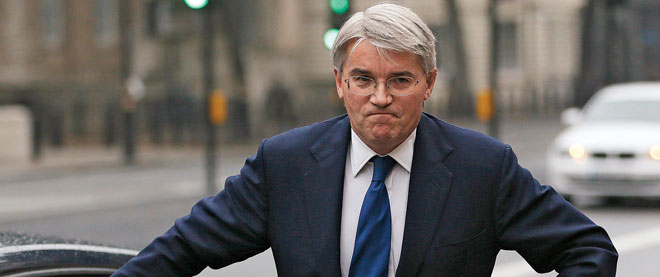Plebs, police and posh prats in Britian’s latest class war
David Cameron’s blue-blooded cronies are acting up
Stefan Wermuth/Reuters
Share

One rule for them, another for everyone else.
This is the line Britain’s Conservative-led government has long been accused by the opposition of taking—and a reputation highlighted to cringeworthy effect last week. In the latest skirmish in Britain’s long-raging and increasingly comical class war, chief whip Andrew Mitchell was forced to resign over allegations he called a police officer a “pleb” within minutes of the Chancellor of the Exchequer George Osborne becoming embroiled in a minor, class-related debacle of his own.
The fact that the Tories are a party dominated by a small coterie of privileged men with aristocratic roots—“posh boys who don’t know the price of milk,” as one more humbly born Tory MP famously quipped—has long dogged Prime Minister David Cameron. He is, and always has been, exceptionally posh. A descendant of King William IV, Cameron surrounds himself with similarly blue-blooded cronies. His chancellor is heir to a baronetcy. Both have private fortunes and were members (along with Boris Johnson, another Old Etonian) of the exclusive Bullingdon Club while at Oxford.
None of this is news, but public irritation at the Tory’s social insularity is mounting. Britons are exceptionally touchy about class and even a whiff of snobbishness from an overlord is apt to set off a media firestorm. Earlier this year a kerfuffle ensued when it emerged Osborne could not remember when he’d last eaten a Cornish pasty—the working man’s snack on which the Tories had just placed a 20 per cent tax. This week the chancellor set off a similar row when, on a train journey from Cheshire to London, he sat in first class on a standard class ticket. (His aide paid the upgrade, but the damage was done in the Twittersphere and a gleeful press pack met him on the platform at Euston.)
And now this: a high-ranking minister’s 30-year career sacrificed for the simple reason that he acted like a stuck-up prat. Here in the U.K., standing politicians get away with fathering children out of wedlock and cozying up to media magnates, but call a copper a “pleb”? As the opposition gleefully pointed out: you’re toast.
Five weeks ago, Andrew Mitchell, a man long on ambition and short of temper (his nickname at private school was “Thrasher”), found himself caught in what seemed to be a minor media debacle. Downing Street police officers, upset that Mitchell had become verbally abusive after they refused to open the gates so he could ride out on his bicycle, leaked the story to the tabloid press, along with allegations that he had called officers “f–king plebs” and instructed them to “learn your place.” Mitchell said he was sorry to the officer in question, who accepted his apology, but the minister categorically denied using the language in question. The prime minister publicly defended his whip, saying he accepted Mitchell’s version of events (over that of the police) and that it was time to “move on”—a stance that annoyed the Police Federation and the press; both refused to let the matter drop.
And so the story rolled on, gaining momentum as the weeks progressed despite the government’s best attempts to quash it. Ill-advisedly, Mitchell shied away from the party conference two weeks ago in Birmingham. Even worse, few Tories sprung to his defence. There were reports of his arrogant abrasiveness and unpopularity in the ranks. As chief whip, it was Mitchell’s job to discipline MPs into voting along party lines. Now he was the one damaging the Tories and exposing the leader to criticism.
The opposition seized the opportunity in Parliament. Labour Leader Ed Miliband taunted the prime minister with revelations that after Mitchell insulted police he went on to a private dinner at the exclusive Carlton Club at the Ritz.
Cameron, who prides himself on loyalty, put on a good show, defending his whip despite mounting pressure to sack him. But as the storm clouds blew in, more and more MPs, including the secretary of defence, joined the call for Mitchell to resign. Four weeks after the original incident, the story was still front-page news. Mitchell, who was by this point not just toasted but well and truly char-grilled, was finally forced to quit. He conceded that “whatever the rights and the wrongs of the matter,” damaging publicity had made it impossible for him to do his job. In essence, he was going, but not for the reasons his enemies wanted him to.
While Mitchell’s downfall might seem like a victory for the regular bloke, do not be fooled. In a fitting conclusion to this political comedy of manners, Mitchell’s replacement, Sir George Young, surpassed his predecessor both in terms of background and politesse. A baronet and Old Etonian, Young is known for his courteous cool-headedness—the behavioural trademark of a gentleman whether in Downton Abbey or Downing Street. The plebs may have pushed back, but the exquisite irony is that Cameron’s cabinet just got even more socially exclusive. How’s that for a bunch of posh boys knowing their place?